Network is a 1976 American satirical film written by Paddy Chayefsky and directed by Sidney Lumet, about a fictional television network, UBS, and its struggle with poor ratings. The film stars Faye Dunaway, William Holden, Peter Finch, and Robert Duvall and features Wesley Addy, Ned Beatty, and Beatrice Straight.
| Network | |
|---|---|
Theatrical release poster | |
| Directed by | Sidney Lumet |
| Produced by | Howard Gottfried Fred C. Caruso |
| Written by | Paddy Chayefsky |
| Starring |
|
| Narrated by | Lee Richardson |
| Music by | Elliot Lawrence |
| Cinematography | Owen Roizman |
| Edited by | Alan Heim |
| Distributed by | Metro-Goldwyn-Mayer (USA & Canada) United Artists (International) |
Release date |
|
Running time | 121 minutes |
| Country | United States |
| Language | English |
| Budget | $3.8 million |
| Box office | $23.7 million |
The film won four Academy Awards, in the categories of Best Actor (Finch), Best Actress (Dunaway), Best Supporting Actress (Straight), and Best Original Screenplay (Chayefsky).
In 2000, the film was selected for preservation in the United States National Film Registry by the Library of Congress as being "culturally, historically, or aesthetically significant". In 2002, it was inducted into the Producers Guild of America Hall of Fame as a film that has "set an enduring standard for American entertainment". In 2005, the two Writers Guilds of America voted Chayefsky's script one of the 10 greatest screenplays in the history of cinema. In 2007, the film was 64th among the 100 greatest American films as chosen by the American Film Institute, a ranking slightly higher than the one AFI had given it ten years earlier.
Screenplay
Howard Beale, the longtime anchor of the Union Broadcasting System's UBS Evening News, learns from friend and news division president Max Schumacher that he has just two more weeks on the air because of declining ratings. The two get drunk and lament the state of their industry. The following night, Beale announces on live television that he will commit suicide on next Tuesday's broadcast. UBS fires him after this incident, but Schumacher intervenes so that Beale can have a dignified farewell. Beale promises he will apologize for his outburst, but once on the air, he launches back into a rant claiming that life is "bullshit." Beale's outburst causes the newscast's ratings to spike, and much to Schumacher's dismay, the upper echelons of UBS decide to exploit Beale's antics rather than pull him off the air. When Beale's ratings seem to have topped out, Diana Christensen, who heads the network's programming department, approaches Schumacher and offers to help him "develop" the news show. He says no to the professional offer, but she also makes a personal offer and the two begin an affair.
Christensen, seeking just one hit show, cuts a deal with a band of terrorists called the Ecumenical Liberation Army for a new docudrama series called The Mao Tse-Tung Hour for the upcoming fall season. When Schumacher decides to end Beale's "angry man" format, Christensen convinces her boss, Frank Hackett, to slot the evening news show under the entertainment programming division so she can develop it. Hackett agrees, bullying the UBS executives to consent and fire Schumacher. In one impassioned diatribe, Beale galvanizes the nation, persuading his viewers to shout out of their windows "I'm as mad as hell, and I'm not going to take this anymore!" Soon afterward, Beale is hosting a new program called The Howard Beale Show, top-billed as "the mad prophet of the airwaves". Ultimately, the show becomes the most highly rated program on television, and Beale finds new celebrity preaching his angry message in front of a live studio audience that, on cue, chants Beale's signature catchphrase en masse: "We're as mad as hell, and we're not going to take this anymore." At first, Max and Diana's romance withers as the show flourishes, but in the flush of high ratings, the two ultimately find their way back together, and Schumacher leaves his wife of over 25 years for Christensen.
When Beale discovers that Communications Corporation of America (CCA), the conglomerate that owns UBS, will be bought out by an even larger Saudi Arabian conglomerate, he launches an on-screen tirade against the deal, encouraging viewers to send telegrams to the White House telling them, "I want the CCA deal stopped now!" This throws the top network brass into a state of panic because the company's debt load has made the merger essential for its survival. Hackett takes Beale to meet with CCA chairman Arthur Jensen, who explicates his own "corporate cosmology" to Beale, describing the interrelatedness of the participants in the international economy and the illusory nature of nationality distinctions. Christensen's fanatical devotion to her job and emotional emptiness ultimately drive Max back to try returning to his wife, even though he doesn't think she'll agree, and he warns his former lover that she will self-destruct at the pace she is running with her career. "You are television incarnate, Diana," he tells her, "indifferent to suffering, insensitive to joy. All of life is reduced to the common rubble of banality." Jensen persuades Beale to abandon the populist messages and preach his new "evangel". However, television audiences find his new sermons on the dehumanization of society depressing, and ratings begin to slide, yet Jensen will not allow UBS executives to fire Beale. Seeing its two-for-the-price-of-one value—solving the Beale problem plus sparking a boost in season-opener ratings—Christensen, Hackett, and the other executives decide to hire the ELA to assassinate Beale on the air. The assassination succeeds, putting an end to The Howard Beale Show and kicking off a second season of The Mao Tse-Tung Hour. As various news reports cover Beale's death, a voiceover proclaims the film "the story of Howard Beale, the first known instance of a man who was killed because he had lousy ratings."
- Faye Dunaway as Diana Christensen
- William Holden as Max Schumacher
- Peter Finch as Howard Beale
- Robert Duvall as Frank Hackett
- Wesley Addy as Nelson Chaney
- Ned Beatty as Arthur Jensen
- Beatrice Straight as Louise Schumacher
- Jordan Charney as Harry Hunter
- William Prince as Edward Ruddy
- Lane Smith as Robert McDonough
- Marlene Warfield as Laureen Hobbs
- Conchata Ferrell as Barbara Schlesinger
- Carolyn Krigbaum as Max's secretary
- Arthur Burghardt as the Great Ahmet Khan
- Cindy Grover as Caroline Schumacher
- Darryl Hickman as Bill Herron
- Lee Richardson as the Narrator (voice)
- Lance Henriksen as Network lawyer (uncredited)
Part of the inspiration for Chayefsky's script allegedly came from the on-air suicide of television news reporter Christine Chubbuck in Sarasota, Florida two years earlier. The anchorwoman was suffering from depression and battles with her editors, and unable to keep going, she shot herself on camera as stunned viewers watched on July 15, 1974. Chayefsky used the incident to set up his film's focal point. As he would say later in an interview, "Television will do anything for a rating... anything!" However, Dave Itzkoff's book Mad as Hell: The Making of Network and the Fateful Vision of the Angriest Man in Movies disputes this, asserting that Chayefsky actually began writing Network months before Chubbuck's death and already planned for Howard Beale to vow to kill himself on air; Chubbuck's suicide was an eerie parallel. Sidney Lumet also confirmed that the character of Howard Beale was never based on any real life person.
But before beginning his screenplay, Chayefsky visited network TV offices. Sitting in on meetings at CBS and NBC, he noted "the politics, the power struggles, the obsession with ratings." And he was surprised to learn that TV execs did not watch much TV. "The programs they put on 'had to' be bad," he said, "had to be something they wouldn't watch. Imagine having to work like that all your life."
According to Dave Itzkoff, what Cheyefsky saw while writing the screenplay during the midst of Watergate and the Vietnam war was all the anger of America being broadcast in everything from sitcoms to news reports. He concluded that Americans “don’t want jolly, happy family type shows like Eye Witness News”... “the American people are angry and want angry shows.” When he began writing his script he had intended on a comedy, but instead poured his frustration at the broadcasts being shown on television, which he described as “an indestructible and terrifying giant that is stronger than the government” — into the screenplay. It became a "dark satire about an unstable news anchor and a broadcasting company and a viewing public all too happy to follow him over the brink of sanity."
The character of network executive Diana Christiansen was based on NBC daytime television programming executive Lin Bolen, which Bolen disputed.
Chayefsky and producer Howard Gottfried had just come off a lawsuit against United Artists, challenging the studio's right to lease their previous film, The Hospital, to ABC in a package with a less successful film. Despite this recent lawsuit, Chayefsky and Gottfried signed a deal with UA to finance Network, until UA found the subject matter too controversial and backed out.
Undeterred, Chayefsky and Gottfried shopped the script around to other studios, and eventually found an interested party in Metro-Goldwyn-Mayer. Soon afterward, United Artists reversed itself and looked to co-finance the film with MGM, since the latter had an ongoing distribution arrangement with UA in North America. Since MGM agreed to let UA back on board, the former (through United Artists as per the arrangement) controlled North American/Caribbean rights, with UA themselves opting for overseas distribution.
Casting
In his notes, Chayefsky jotted down his ideas about casting. For Howard Beale, who would be eventually played by Peter Finch, he envisioned Henry Fonda, Cary Grant, James Stewart and Paul Newman. He went so far as to write Newman, telling him that "You and a very small handful of other actors are the only ones I can think of with the range for this part." Lumet wanted Fonda, with whom he had worked several times, but Fonda declined the role, finding it too "hysterical" for his taste. Stewart also found the script unsuitable, objecting to the strong language. Early consideration was given to real-life newscasters Walter Cronkite and John Chancellor, but neither was open to the idea. Although not mentioned in Chayefsky's notes, George C. Scott, Glenn Ford and William Holden reportedly also turned down the opportunity to play Beale, with Holden instead playing Max Schumacher: for that role, Chayefsky had initially listed Walter Matthau and Gene Hackman. Ford was under consideration for this part as well, and was said to be one of two final contenders. Holden finally got the edge because of his recent box-office success with The Towering Inferno.
The movie's producers were wary that Finch, born in England and raised partly in Australia, would be able to sound like an authentic American; they demanded an audition before his casting could be considered. Finch, an actor of considerable prominence, reportedly responded, "Bugger pride. Put the script in the mail." Immediately realizing that the role was a plum, he even agreed to pay his own fare to New York for a screen test. He prepared for the audition by listening to hours of broadcasts by American newscasters, and by weeks of reading the international editions of The New York Times and the Herald Tribune into a tape recording, then listening to playbacks with a critical ear. Gottfried recalled that Finch "was nervous as hell at that first meeting over lunch and just like a kid auditioning. Once we'd heard him, Sidney Lumet, Paddy, and I were ecstatic because we knew it was a hell of a part to cast." Finch cinched the deal with Lumet by playing him the tapes of his newspaper readings.
Faye Dunaway wanted Robert Mitchum to play Max Schumacher, but Lumet refused, believing that Mitchum wasn't sufficiently urbane.
For the role of Diana Christensen, Chayefsky thought of Candice Bergen, Ellen Burstyn, and Natalie Wood, while the studio suggested Jane Fonda, with Kay Lenz, Diane Keaton, Marsha Mason and Jill Clayburgh. Lumet wanted to cast Vanessa Redgrave in the film, but Chayefsky didn't want her. Lumet argued that he thought she was the greatest English-speaking actress in the world, while Chayefsky, a proud Jew and supporter of Israel, objected on the basis of her support of the PLO. Lumet, himself a Jew, said "Paddy, that's blacklisting!", to which Chayefsky replied, "Not when a Jew does it to a Gentile."
Dunaway was cast as Diana in September 1975. Lumet told her that he would edit out any attempts on her part to make her character sympathetic and insisted on playing her without any vulnerability.
Lumet cast Robert Duvall as Frank Hackett. Duvall saw Hackett as a "vicious president Ford". On Duvall, Lumet said: "What's fascinating about Duvall is how funny he is."
Ned Beatty was cast as Arthur Jensen on the recommendation of director Robert Altman after the original actor failed to live up to Lumet's standards. Beatty had one night to prepare a four-page speech, and was finished after one day's shooting.
Beatrice Straight played Louise Schumacher, Max's wife, on whom he cheats with Diana.
Straight had won a Tony Award in 1953 for playing an anguished wife who is similarly cheated upon in Arthur Miller's The Crucible.
Filming
After two weeks of rehearsals, filming started in Toronto in January 1976.
Lumet recalled that Chayefsky was usually on the set duri
Watch movie Network 1976 Film online on Amazon
Watch movie Network 1976 Film online
Watch The Movie On PrimeShool Full HD Movie Download
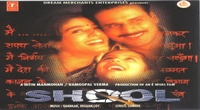
Ram Jaane Full HD Movie Download
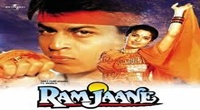
Imaan Full HD Movie Download
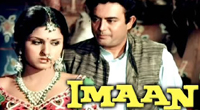
Sheetla Mata Full HD Movie Download
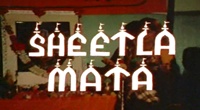
Tawaif Full HD Movie Download
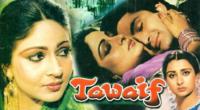
Qila Full HD Movie Download
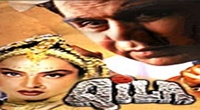
Vijetha (Telugu) Full HD Movie Download
.jpg)
Srimathi Kavali Full HD Movie Download
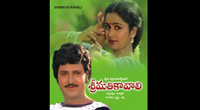
Jeet-Born To Win Full HD Movie Download

Thulli Thirinda Kaalam Full HD Movie Download
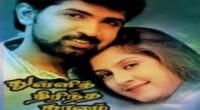
Abhimanavanthulu Full HD Movie Download

Allauddin Adbutha Deepam Full HD Movie Download
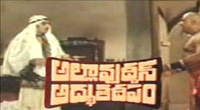
Poochho Mere Dil Se (2004) Full HD Movie Download
.jpg)
The Departed Full HD Movie Download
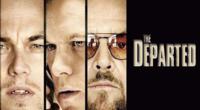
Thaskara Lahala Full HD Movie Download

Imayam Full HD Movie Download
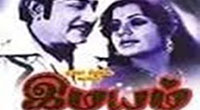
Anjali Full HD Movie Download
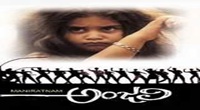
Devi Putrudu Full HD Movie Download
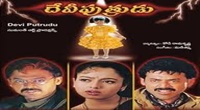
Bobby Full HD Movie Download

Sabhash Ramudu Full HD Movie Download
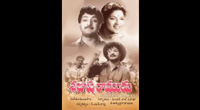
Pyaar Impossible Full HD Movie Download

Download latest Movie from bollywood
- 1> baaghi 3
- 2> THE SKY IS PINK MOVIE FULL STORY AND REVIEW
- 3> Luka Chuppi
- 4> TO ALL THE BOYS I’VE LOVED BEFORE
- 5> Kabir Singh
- 6> Street Dancer 3D
- 7> Simmba
- 8> Gone Girl
- 9> The Girl Who Lived
- 10> Ludo
- 11> DILWALE DULHANIA LE JAYENGE
- 12> GUILTY
- 13> The Godfather
- 14> Adventures of Rusty
- 15> Sooryavanshi
- 16> Satyameva Jayate 2
- 17> Thappad
- 18> Bhool Bhulaiyaa 2
- 19> KGFChapter 2
- 20> Mardaani 2
- 21> Pinjar
- 22> Shivaji maharaj
- 23> Ek Villian 2
- 24> Hungama 2
- 25> Divergent
- 26> Mumbai Saga
- 27> The Internship
- 28> HIT (telugu)
- 29> Panga
- 30> The perfect date
- 31> 16 December
- 32> Gopala Gopala (Telugu)
- 33> Brahmastra
- 34> Gangubai Kathiawadi
- 35> Manmadhudu
- 36> Nenu local
- 37> Mahanati
- 38> Shatamanam bavathi
- 39> Lagaan
- 40> After
- 41> MOM
- 42> Shamshera
- 43> Raguvaran BTech
- 44> Khakee
- 45> The villain
- 46> OM
- 47> Mr. perfect
- 48> Bueatifull mind
- 49> Hichki
- 50> Gabbar Singh
- 51> Jogi
- 52> Before Sunrise
- 53> Before Sunset
- 54> Before Midnight
- 55> The Big Bull
- 56> Top Gun: Maverick
- 57> The Purge
- 58> The Sky is Pink
- 59> Laxmmi Bomb
- 60> Sadak 2
- 61> Sufna
- 62> Prithviraj
- 63> PK
- 64> Coolie No 1(2020)
- 65> Black Widow
- 66> Dear Zindagi
- 67> Dil Bechara
- 68> PHIR HERA PHERI
- 69> WAR
- 70> Dostana
- 71> RRR: Roudram Ranam Rudhiram
- 72> Maidan
- 73> Dabbang 3
- 74> Chhalaang
- 75> life as we know it
- 76> SherShaah
- 77> Sandeep Aur Pinky Faraar
- 78> Event Horizon
- 79> 83
- 80> Radhe: Your Most Wanted Bhai
- 81> Gunjan Saxena: The Kargil Girl
- 82> Mr India
- 83> Vivah
- 84> Anokha Bandhan
- 85> Ghost
- 86> Bhoot: Part One - The Haunted Ship
- 87> Haseen Dilruba
- 88> Laal Singh Chaddha
- 89> Qismat
- 90> Rajput
- 91> Drive
- 92> Dil Chahta Hai
- 93> Dil Ki Baazi
- 94> Dil Ka Rishta
- 95> Teesri Manzil
- 96> Dil
- 97> Love Aaj Kal
- 98> Khaali Peeli
- 99> Bunty Aur Babli 2
- 100> Atrangi Re
- 101> Gulabo Sitabo
- 102> Jodi
- 103> Suraj Pe Mangal Bhari
- 104> Deewana
- 105> Attack
- 106> Sardar Udham Singh
- 107> Toofan
- 108> THE LOVEBIRDS
- 109> Jersey
- 110> Ginny Weds Sunny
- 111> Thalaivi
- 112> Shiddat
- 113> Angels vs Zombies
- 114> Koi Mil Gya
- 115> Thank God
- 116> Bhuj: The Pride of India
- 117> Hum Aapke Hain Kaun
- 118> The Platform
- 119> Bird Box
- 120> Roohi Afzana
- 121> Torbaaz
- 122> Nikamma
- 123> World War Z
- 124> Extraction
- 125> Train to Busan
- 126> Life of Pi
- 127> SHAADI MEIN JROOR AANA
- 128> Himmat Aur Mehnat
- 129> To All The Boys: P.S. I Still Love You
- 130> Mimi
- 131> Good Newwz
- 132> Shubh Mangal Zyada Saavdhan
- 133> Raabta
- 134> Harry Potter and the Philosopher's Stone
- 135> Harry Potter and the Chamber of Secrets
- 136> Chhapaak
- 137> War of the Worlds
- 138> Harry Potter and the Prisoner of Azkaban
- 139> Harry Potter and the Goblet of Fire
- 140> MURDER MYSTERY
- 141> Shakuntala Devi
- 142> Bachchan Pandey
- 143> Jayeshbhai Jordar
- 144> Sheer Qorma
- 145> Saina
- 146> 'O' Pushpa I hate tears
- 147> Kedarnath
- 148> MS Dhoni The Untold Story
- 149> Chhichhore
- 150> Badhaai Ho
- 151> Unstoppable
- 152> Oz the Great And Powerful
- 153> The Girl on the Train
- 154> Haathi Mere Saathi 2020
- 155> The Conjuring: The Devil Made Me Do It
- 156> Gandhi Se Pehle Gandhi
- 157> The Song of Scorpions
- 158> Srimanthudu
- 159> Hello Guru Prema Kosame
- 160> Beauty and The Beast
- 161> Black Panther
- 162> Charlie and the Chocolate Factory
- 163> Bole Chudiyan
- 164> Fidaa
- 165> Duvvada Jagannadham
- 166> Bruce Lee: The Fighter
- 167> Hyper
- 168> Yaara
- 169> Red (2020)
- 170> Shivam
- 171> That Is Mahalakshmi
- 172> Nishabdham
- 173> Aashram 2020 web series
- 174> Laxmii
- 175> Mismatched
- 176> STUDENT OF THE YEAR 2
- 177> NAIL POLISH
- 178> Ramprasad Ki Tehrvi
- 179> KAAGAZ
- 180> 12 o Clock
- 181> The Power
- 182> bolo hau
- 183> Tribhanga
- 184> JAMUN
- 185> Madam Chief Minister
- 186> Maasaab
- 187> Aadhaar
- 188> Tanhaji
- 189> Bhaagi 3
- 190> Bhootnath
- 191> MALANG
- 192> Jai Mummy Di
- 193> Haathi Mere Saathi 2021
- 194> Shakeela
- 195> Unpaused
- 196> Annayya
- 197> Vamsoddharakudu
- 198> Mrugaraju
- 199> Narasimha Naidu
- 200> Sankranti
- 201> Manasu Maata Vinadhu
- 202> Anjaane
- 203> Apaharan
- 204> Bachke Rehna Re Baba
- 205> Bewafaa
- 206> Roohi
- 207> Radhe
- 208> Zindagi Khoobsoorat Hai
- 209> Yeh Mohabbat Hai
- 210> Yeh Kya Ho Raha Hai?
- 211> The Tomorrow War
- 212> DehradunDiary
- 213> Meri Shaadi Karaoo
- 214> Matruu Ki Bijlee Ka Mandola
- 215> No One Killed Jesica
- 216> Aag Ka Goola
- 217> Eight Million Dollars
- 218> Three Hundred
- 219> Cats and Dog
- 220> Decoy
- 221> Gold Rush
- 222> You Have Got Mail
- 223> Final Destination three
- 224> Tofan
- 225> Jungle
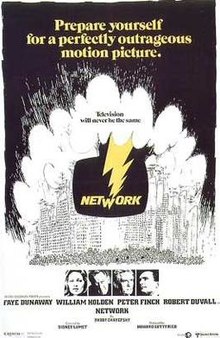 Story of movie Network 1976 Film :
Story of movie Network 1976 Film : 